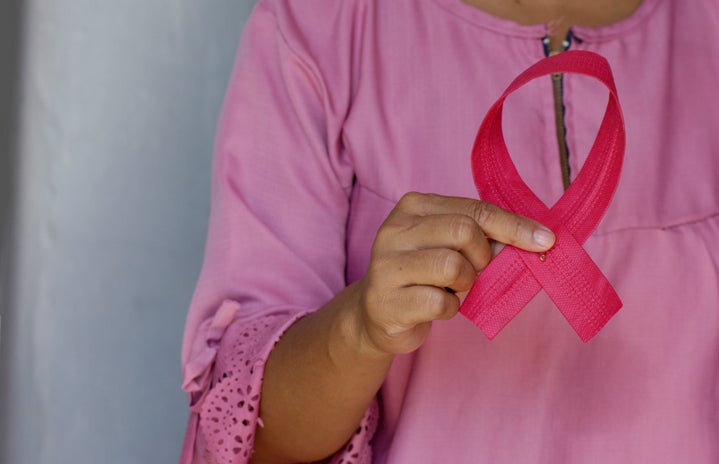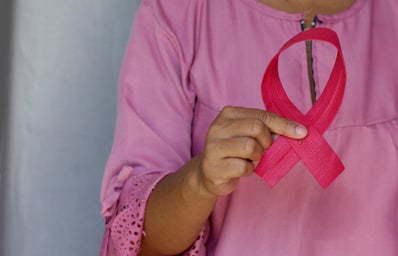October is Breast Cancer Awareness Month, an annual campaign that raises awareness of the disease and how it impacts the lives of individuals diagnosed with this disease.
Many of us know someone in our lives who has put up a brave battle with breast cancer. Maybe a mother, grandmother, aunt, sister, cousin or friend. Maybe some of those individuals have passed away and maybe some are survivors; now one in every eight women is diagnosed with breast cancer.
In North America, 220 000 women will be diagnosed with breast cancer every year, and 40 000 will die – breast cancer is the second leading cause of cancer death among women. Within this statistic, 95% of diagnoses are women 40 years of age and older, as two significant risk factors for breast cancer are being a woman and aging.
https://www.dosomething.org/us/facts/11-facts-about-breast-cancer
The effects of breast cancer on someone’s life and the lives of their family are beyond comparable. I know from watching my mom fight breast cancer, that the numerous factors involved with the diagnosis, prognosis and surgery were difficult for her. These factors include getting to and from appointments, applying for disability and other financial aid, discussing her diagnosis with friends and family and preparing for and recovering from surgery, both physically and psychologically.
My mom was fortunate to have had access to healthcare, resources and support systems. Some women don’t have access to transportation to and from appointments, financial aid and other support systems and will still have to endure the physical and psychological impact of undergoing treatment and having surgery.
On top of these stressors, there is the psychological impact of being diagnosed and receiving treatment through chemotherapy, radiation and surgery.
As the associations and symbolism of breasts represent concepts of femininity, motherhood, fertility, self-image, sexuality and identity, the treatment surrounding the area of the breasts or a mastectomy can lead to increased struggles with mental health and body image.
Listening to and supporting women’s experiences with breast cancer is crucial to raising awareness and funding for research.
Thanks to awareness and research, the death rate has decreased by 48% since its peak in 1986. The reduced rate is primarily due to screening practices and studies showing that a healthier lifestyle of limited alcohol and smoking and increased exercise can reduce the possibility of developing breast cancer.
https://cancer.ca/en/about-us/stories/2020/6-reasons-to-celebrate-breast-cancer-awareness-month
Additionally, more awareness has created a community of support, so no survivor feels alone on their journey, including online communities such as CBCN: Canadian Breast Cancer Network (https://www.cbcn.ca/en/support_groups) and Wellspring Breast Cancer Support (https://wellspring.ca/online-programs/programs/all-programs/breast-cancer-support-group/).
There is also CIBC’s Run For the Cure, a five-kilometre or one-kilometre walk that helps raise money for research by bringing together people passionate about changing breast cancer’s future.
https://cancer.ca/en/get-involved/our-events/cibc-run-for-the-cure
Creating awareness, a sense of community and research for individuals diagnosed with breast cancer can offer more life-changing support to the courageous women who fight this disease.


